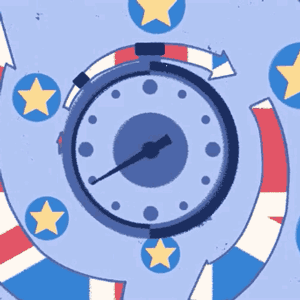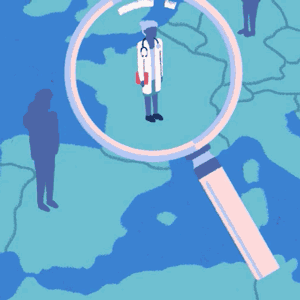Brexit Testimonies
Steve in Romania
"... the EU and the UK now have such well-entrenched non-political relationships that ... it may be a matter of riding the storm until the political impact stabilises."
I had had very little interest in Eastern Europe until 1992 when I was asked to help with the preparations for an aid mission to Dorohoi in northeastern Romania. The needs in Romania were very much in the news at that time but most of the aid was being directed to the west side of the country. We continued to send aid several times a year but the nature of the needs and ad hoc distribution arrangements indicated that more formal arrangements were required; this was put into place in 1997 with the formation of registered charities in UK and in Romania. Since then we have been sending and distributing approximately 100 tons of aid each year.
In 2008 I had the opportunity to take early retirement and became a full-time volunteer with our charity. I had already made numerous visits to Dorohoi following the establishment of the charities and in 2011 I formally moved to Romania, to help with the growing numbers of beneficiaries that we were registering. Romania is a potentially rich country but it has many poor people and areas such as the north-east are being left behind by the progress made elsewhere. Our Romanian charity has registered over 4,500 beneficiaries (households or institutions) to date, over 1,000 of which are still actively receiving donations on a regular basis.
Working in the aid sector, I get to see on a daily basis the misery caused by inappropriate policies imposed by the European Commission. Policies such as the liberation of the domestic energy market and the preservation of natural forest have led to significant price rises and many households now have great difficulties in feeding themselves and keeping warm. Policies that might have some merit in the relatively wealthy countries of north-west Europe do not transfer well to the low-income low-cost societies of southern Europe; one only has to look at case histories in Greece and Italy to see how the imposition of the Euro has caused great economic upheaval in societies that simply had a different cultural outlook. It is not difficult to foresee a situation similar to that in Germany in the early 1930s, when a privileged section of the population was having a good time and could not see the impending storm.
The prospect of Brexit has already encouraged the rise of a more localised form of democracy across the continent - derided as populism by those threatened by it. It is unfortunate that the principles of law and order have to be compromised before those in power take any notice of those that they purport to represent. Having said that, I think that membership of the European Union itself offers considerable advantages to the citizens of EU states but these are being undermined, even negated, by the heavy-handed approach currently adopted by the European
Commission, abetted by those who gain personally from its directives.
On a personal basis, it seems that Brexit is likely to cause more difficulties for me in terms of complicating the procedures for international transport and continued residency. Nevertheless, the EU and the UK now have such well-entrenched non-political relationships that cannot easily be abandoned and it may be a matter of riding the storm until the political impact stabilises.

Brexit is a tragedy and an outrage for us, throwing everything up into the air which we had every right to think was secure.
Read Justin's Brexit testimony.
Read Steve's postcard to the project team.
 Timeline
Timeline Testimonies
Testimonies
 Mythbusters
Mythbusters
